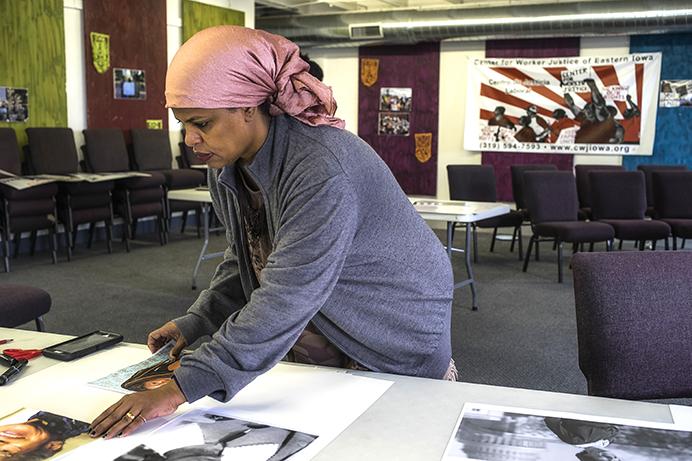By Aja Witt
The Eastern Iowa Center for Worker Justice, 940 S. Gilbert Court, has seen a growing demand for its services following the travel ban and Mexican border wall ordered by President Trump.
Mazahir Salih, a community organizer for the center said Iowa City is home to a growing population of Latino and Sudanese Americans with “between 700 to 900 [Sudanese] families” in the city.
The ban would effectively prevent entry into the United States for people from six majority-Muslim countries: Iran, Libya, Syria, Somalia, Yemen, and Sudan.Out of what Salih said is “fear,” the center is getting more business from Sudanese and Latino communities that have questions and concerns.
“The Sudanese community … they are one of the [ones affected by the] executive order, the banned countries,” Salih said. “Now, they have a lot of questions, and they come here. We have a lot of Latinos and people from different countries who keep us very busy.”
To help with these questions and provide support for all Johnson County immigrants, the center seeks volunteers, or immigration responders. This response team would assist the center during any emergency scenarios that might occur.
Michelle Hoehne, the center’s communications coordinator, said the immigration responders would be responsible for translation, daycare services, food, and transportation, among other things.
“For families who have children, if something should happen where parents are taken while children are at school,” Hoehne said. “The type of transportation would be making sure those kids have somewhere to go, making sure they have food if their parents are gone.”
Should those parents need legal counsel while being detained, Hoehne said, the center also provides representation.
The center has been working with the University of Iowa Law Clinic and with lawyers who specialize in immigration at the UI and in Iowa City.
Yearly, the center, which has been operating in Iowa City since 2012 and was then known as the Immigrant Voices Project, works with a few hundred residents. But it regularly keeps up with around 30 to 50 individuals from various ethnic backgrounds.
The center has three languages represented on its staff: English, Spanish, and Arabic, with one board member who speaks seven languages, including French and Portuguese.



